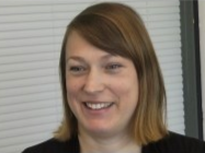Ruth X

Ruth was pregnant with her second son. She developed pre-eclampsia with her first son was invited to join the BuMP trial.
Ruth is married and was pregnant with her second son. She is a research manager.
More about me...
Ruth had developed pre-eclampsia during her first pregnancy, when she was 37 years old. She self-monitored her own blood pressure during that pregnancy. So when she got pregnant again, aged 42, she expected to have a lot of monitoring through her pregnancy. She was happy to engage with self-monitoring of her blood pressure as part of the study. Her second pregnancy was complicated by the development of gestational diabetes at 10 weeks. She had her son by planned caesarean section at 37 weeks. Monitoring did not reveal any raised blood pressure during pregnancy, but after her son was born Ruth did have raised readings for a three or four weeks.
Ruth X had extra monitoring from 28 weeks into her first pregnancy through a specialist maternity care unit.
Ruth X had extra monitoring from 28 weeks into her first pregnancy through a specialist maternity care unit.
Ruth X had pre-eclampsia in her first pregnancy and she self-monitored her blood pressure in a subsequent pregnancy. She explained that she may become unwell to her young son so he was aware that she may have to stay in hospital.
Ruth X had pre-eclampsia in her first pregnancy and she self-monitored her blood pressure in a subsequent pregnancy. She explained that she may become unwell to her young son so he was aware that she may have to stay in hospital.
Ruth X had a special arrangement in her first pregnancy with her doctors which meant she was allowed to monitor her own blood pressure at home. She took part in the BuMP study in a following pregnancy.
Ruth X had a special arrangement in her first pregnancy with her doctors which meant she was allowed to monitor her own blood pressure at home. She took part in the BuMP study in a following pregnancy.
Ruth X explained some of the reasons why she wanted to take part in the BuMP study.
Ruth X explained some of the reasons why she wanted to take part in the BuMP study.
And do you find that reassuring that you’ve got.
Yes.
Another layer of.
Yeah.
Professionals?
If you need to, yeah, if you need to. It gives you, I think in, certainly in other people that have taken part in trials as well that I’ve talked to and things like that, I think the extra monitoring or the extra provision of information or people that you can go to talk to is very reassuring and helpful for people. Because sometimes, I mean you do, although I have to say so far the information that I’ve received from my healthcare providers from the [special care] team and my GP and midwife has been very good, you know, that not, that’s not always been my experience in the past and you sometimes, the internet is very good for providing some information but you do have to balance it with the evidence and knowing the right sources to go to and also it it’s also very much, certainly in my case, everything is very, very individual and it’s how your own body, so that you can find some pieces of information say x, y and z is going to happen but, actually, that’s probably not going to happen to you and you need to have a professional to talk through your particular circumstances.
And you do sometimes wonder, you know, whether or not you’re going to be able to get that time with a health professional. So far, I’ve not had a problem. They’ve answered everything I’ve needed to have answered but, you know, if it had been the same as my previous pregnancy, where I wasn’t getting information and taking part in a trial, that, in within that pregnancy, I would have really been grateful for the extra information or the extra place I could go onto and ask for extra advice or a second opinion as I didn’t feel they were acting in my best interests then.

